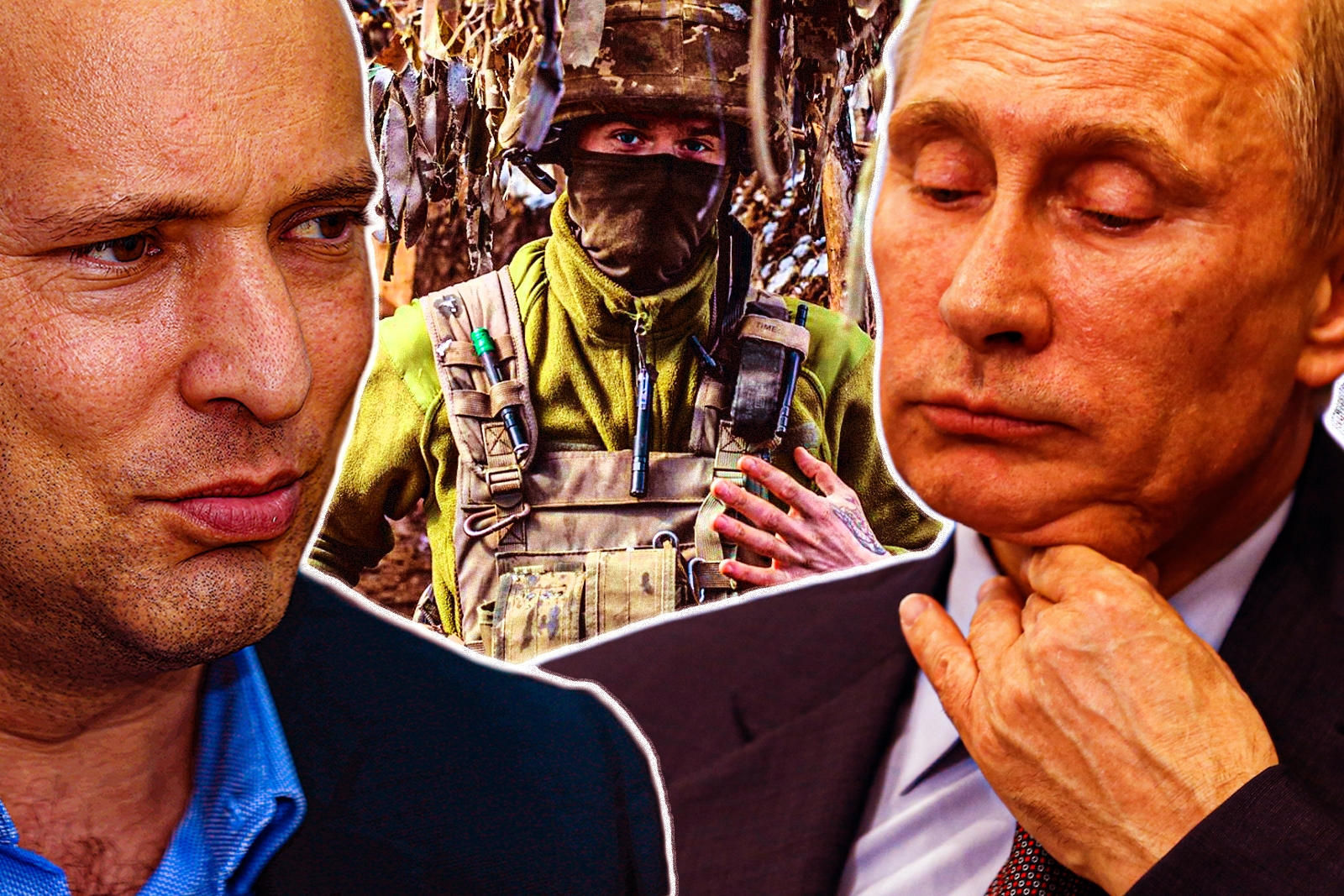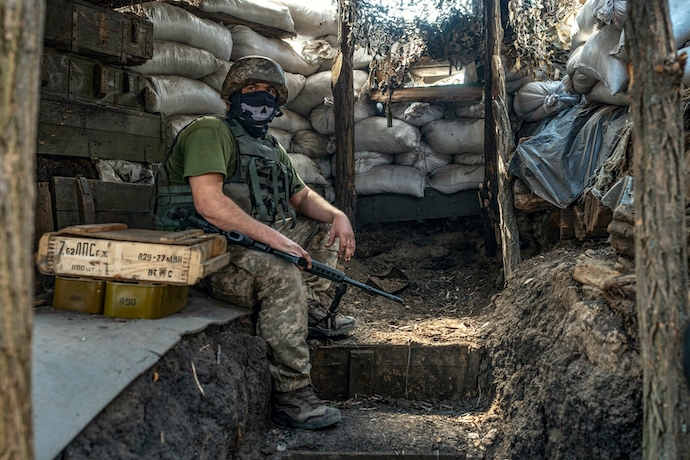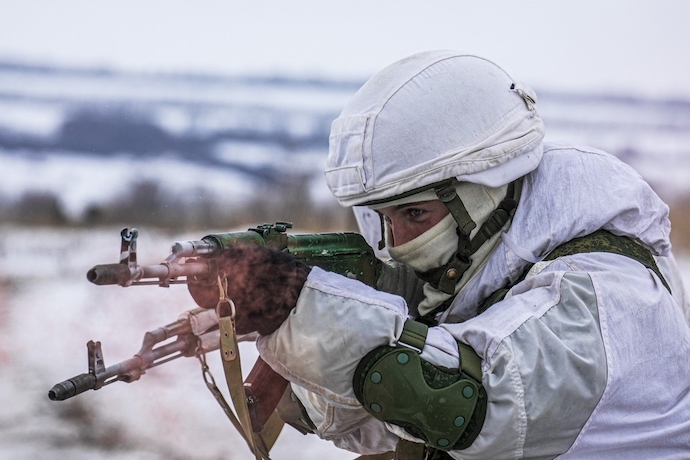
Treading the Tightrope: Israel’s Balancing Act Between Great Powers
As tensions heat up between Russia and the United States over the fate of Ukraine, the collateral forces exerted by these two great powers have been felt across the Middle East. In particular, Israel, America’s best friend in the region, finds the creeping pressure of great power competition right on its doorstep. Straddling the worlds of national security and economic issues, Russia, China, and the U.S. each have much to gain from being an active and engaged player in the region. Though Israel is often seen as a protector of U.S. interests in the region, it is still an independent regional power feeling the push and pull of competing external actors.
Navigating thorny issues from trade and technology relations with China to coordination with Russia on regional security issues, particularly on Iranian proxies in Syria, has already caused tension between the Jewish State and its American protector. Now, given the rise of tensions between the U.S. and Russia over Ukraine, Israel may find itself caught in the crossfire between two global giants once again. During these tense times, Israel must exert caution as it balances its commitment to the United States while it expands its relationship with the Russians.
Israel has to be judicious in how it approaches the often-contentious relationship between the U.S. and Russia. Israel and Russia re-established relations in 1991, with Israel absorbing a massive influx of Soviet Jews. The Israeli-Russian relationship faces many challenges, namely Russia’s close relationships with some of Israel’s most dangerous enemies including Assad’s Syria and Iran. Nevertheless, Russia has a large swath of influence and power in the region.

Given its position between Israel and its foes, Russia has been able to serve as a power broker among the likes of Israel, Iran, and Hezbollah in Syria. According to Ksenia Svetlova of Mitvim, Israel has an “almost total dependence on cooperation with the Russians on our northern border.” Russia is also a member of the P5+1, crucial to Israel’s concerns over Iran’s nuclear program; is a major exporter of energy to the region; and serves as a significant hub for travel, business, and familial relationships for many of the more than one million Israelis of Russian heritage. Given this geopolitical context, Israeli cooperation with Russia is critical.
To date, Israel has tread delicately between Russia and the United States. Former Prime Minister Benjamin Netanyahu and President Vladimir Putin were known to have had a very cordial relationship. This relationship has continued under Prime Minister Naftali Bennett.
Bennett himself met with Putin last October, even extending his stay through Shabbat. Israel’s reliance on Russia for security in Syria has, at times, put it at odds with the United States. Israel has conceded to Russian pressure in the past. In 2008 and 2014, Russia was able to pressure Israel into halting arms deals with both Georgia and Ukraine respectively, both moves on the eve of the Russian invasion into these territories. Also in 2014, upon the Russian annexation of Crimea, Israel publicly claimed to be neutral in the conflict, even going so far as to abstain from voting to censure Russia and expressing support for the territorial integrity of Ukraine. This public disagreement with the U.S., particularly in a forum where the U.S. consistently stands by Israel, came as a surprise to those in the Obama administration and was met with ire.
Despite these developments, the U.S. and Israel have maintained a clear and open dialogue regarding Russian relations, even as tensions between the two great powers have been rising over conflicting interests in Ukraine in recent weeks. Whether in the context of Iran nuclear talks, security along the Syrian border, or the situation in Ukraine, Russia is a frequent topic of conversation between Biden administration officials and the Israeli government. Earlier this month, Secretary of State Antony Blinken briefed Foreign Minister Yair Lapid on developments in Ukraine. In a report produced by Foreign Policy on January 13, policy experts in Washington, including Dan Arbell of the Center for Israel Studies at American University and John Schanzer of the Foundation for Defense of Democracies, assured the public that Washington and Jerusalem deeply understand each other’s needs and concerns with regards to Russia.
However, very recent developments between Israel and Russia raise potential red flags in Israel’s delicate game of power politics. Just recently it was reported that Russia held a joint jet patrol with Syria along its borders, including the Golan Heights. This appears to be a shift in Russian policy, much to the surprise of the Israelis. However, it was further reported that Israel had agreed to limit its air campaign in Syria as a result of Russia’s move, even after discussions between Israeli and Russian military officials wind to a close. These decisions run contrary to the general consensus between Israel and Russia around Israel’s “freedom to act” in Syria and could complicate its ability to conduct further strikes against hostile targets in the region.

Given that this move occurred as tensions around Russia’s potential invasion of Ukraine reach a new high, many speculate that Israel may find itself on the fringe of a larger regional conflict. With its coordination with Russia on security needs in Syria, Israel’s appeasement of the Russian policy reversal makes sense. Yet could this military pivot leave Israel vulnerable to greater national security threats? A Russia at war in Ukraine will certainly have its focus away from the Middle East, opening up holes for Israel’s enemies to take advantage of the situation without Moscow standing in the way. This decision puts Israel in the midst of a multi-directional pull. If Israel stands against the Russians, does it jeopardize its strategic security relationship? If it continues to agree, does it expose itself to greater threats? Considering Russia’s significant role in the Syrian-Iranian security sphere, it does in fact have leverage over Israel.
Though not a central player in the Russia-Ukraine-NATO conflict, Israel will no doubt feel the collateral effects of the increase in tensions among these powers beyond immediate security concerns. The most recent change in policy regarding Israel’s freedom to act could be seen as a move to pressure the Israelis into taking a softer stance on any action in Ukraine, similar to the way Israel handled the 2014 annexation of Crimea. Analysts at BICOM (British Israel Communication and Research Centre) have also recently expressed concerns that this move could be sending a warning to the U.S. with regard to Ukraine or an effort to use Israel to persuade the U.S. not to interfere in the conflict.
By succumbing to Russian pressure, Israel could find itself on the wrong side of conflict with its American ally. It’s a known fact that both Biden and Bennett seek to avoid the conflict and tension that was felt between Bennett’s predecessor and the previous Obama administration. Both sides have been transparent, conducting frequent meetings and closely cooperating with one another on countless fronts. Even when there are differences of opinion, each country maintains a positive perception of the other. Nevertheless, cracks lie in this relationship. Increased tension over settlement construction, the stalled reopening of the U.S. Consulate to the Palestinians, and an uptick in Chinese-Israel relations, including Chinese construction of consequential pieces of infrastructure and heavy investment in Israel’s high tech and agricultural sectors, have put a strain on the cooperation between these two allies. However, given Russia’s leverage in the region, Israel may not have much of a choice.
After Israel’s stance of neutrality on Crimea in 2014, an unnamed Israeli official stated that “there is an assumption in Jerusalem that it is easier to ask the Americans to swallow the frog than to risk upsetting the Russians. Out of fear, we made our lives harder.” 8 years later, this sentiment still rings true, with Israel caught between strategic interests. In an unstable region marred by the ebb and flow of great powers on the brink of collision, Israel finds itself in a more delicate position than it has been in a long time. Perhaps its tightrope act of the past several decades is truly beginning to fray. No matter the outcome, these policy shifts amid heated tensions should serve as a warning to those in Israel’s security and foreign policy sectors—the great power game is a dangerous one, and your bets must be hedged carefully.
